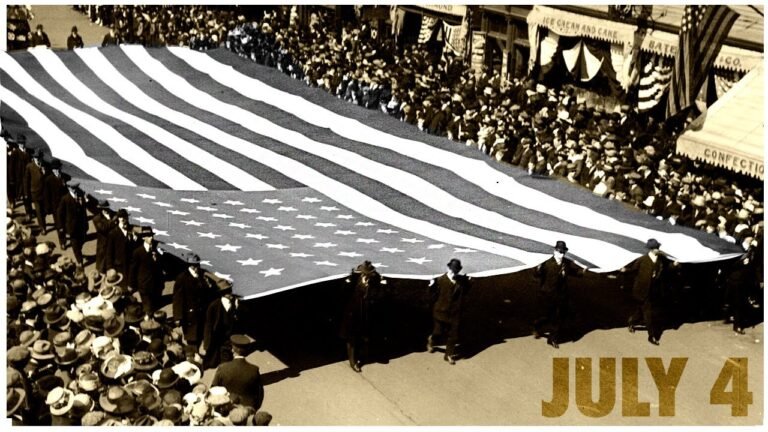
When the 4th of July rolls around each year, the first images that probably come to mind are barbeques in your backyard, everything themed in the colors of red, white and blue, American flags everywhere and loud fireworks blasting off once the sun sets. But while you’re participating in one of those hotdog-eating contests or watching a patriotic war movie, have you ever wondered why we Americans celebrate this day and hold it in such high regard?
The 4th of July, or Independence Day, is one of many American Federal Holidays. But even still, Independence Day is far more widely known, more celebrated and frankly, more important than all these other days to most Americans. And the reason for this is because of what this holiday represents for this entire country. The reason for celebration was the passage of the Declaration of Independence way back on July 4th, 1776 which not only officially created the United States of America as a sovereign nation, but it also laid out many of the values by which this new country would be built upon. Without the 4th of July, those other holidays simply wouldn’t exist. However, there is much more to the story than that, and in order to fully understand the significance of Independence Day as well as what led to it becoming the holiday that it is today, one must dive deep into the illustrious history which surrounds this American day of festivity.
Video Chapters:
0:00 What is the Meaning Behind July 4th Celebrations?
1:47 What Led to the United States Even Becoming a Nation?
11:08 The Declaration of Independence – The Document that Formed the USA
13:17 Independence Day – How July 4th Became One of the Most Important American Holidays
19:15 Conclusion – July 4th, One of the Most Important Days to Americans
Join this channel to get access to perks:
IT’S HISTORY – Weekly tales of American Urban Decay as presented by your host Ryan Socash.
» CONTACT
KultAmerica@mediakraft.tv
» CREDIT
Scriptwriter – Brandon Evans,
Editor – Sebastian Ripoll
Host – Ryan Socash
» SOURCES
» NOTICE
Some images may be used for illustrative purposes only – always reflecting the accurate time frame and content. Events of factual error / mispronounced word/spelling mistakes – retractions will be published in this section.
source